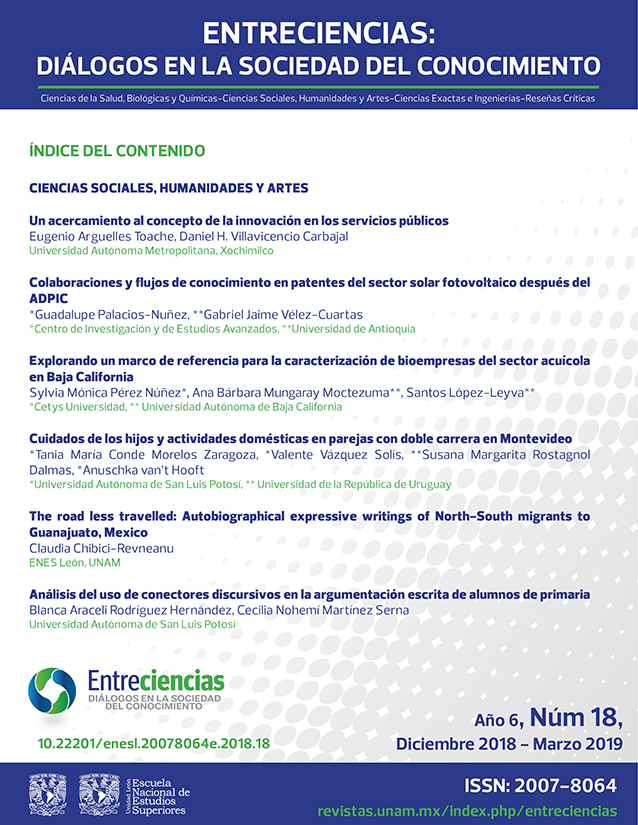Analysis of the use of discursive connectors in written argumentation in students of basic education
Main Article Content
Abstract
This article shows the result of an investigation that analyzes which discursive connectors are used by students of basic education to justify their points of view and debate the opposite position as well as how they do it. The objective was to know the initial stage of their language ability to guide the design of teaching activities by doing applied research with new didactic strategies. In the diagnostic phase, a fictitious case was designed from a controversial and close situation to the students in order to get their opinion. 114 texts were evaluated with a control table that allowed us to compare how connectors are used by the students. Results indicate that the connectors most widely used were porque (because), para que (so that), pero (but), and por eso (that is why). At the same time, it was identified that non-conventional uses are in function because of lack of grammatical knowledge and not knowing about the subject matter which would allow students to construct pragmatically correct links between the sentences.
Downloads
Article Details
Citas en Dimensions Service

Entreciencias: Diálogos en la Sociedad del Conocimiento recognizes and respects the moral rights of authors as well as ownership rights transferred in non-exclusivity to the journal for its open access dissemination and its preservation. Hence, authors who publish in this journal accept the following conditions:
- Entreciencias: Diálogos en la Sociedad del Conocimiento from Universidad Nacional Autónoma de México is distributed under a Licencia Creative Commons Atribución-NoComercial-SinDerivar 4.0 Internacional, which allows the information and metadata to be used without commercial ends as long as proper citation is utilized.
Authors will have the right to non-exclusively distribute the contribution made to Entreciencias: Diálogos en la Sociedad del Conocimiento. That is, they will be able to include it in an institutional repository or disseminate it in other digital or printed media as long as it is explicitly stated that it was first published in Entreciencias: Diálogos en la Sociedad del Conocimiento. The following information must additionally be included: author, year, volume, page numbers, electronic paging, and DOI.
Authors, whose publications have been accepted, will have to send the Letter of Copyright Transfer in the corresponding format, filled out and signed by the author or authors.

